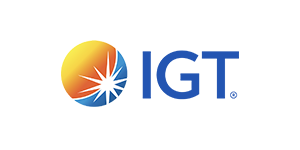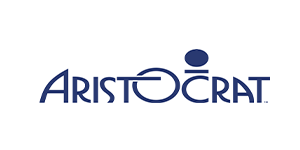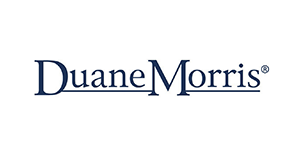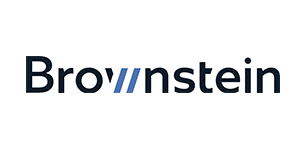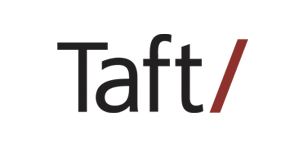- Home
- About IAGA
- Bylaws
- Our History
- Our Leadership
- Our News
- Events
- Membership
- Sponsorship
|
IRS Memo: Daily Fantasy Sports Are Wagers Subject to Excise Taxes
This familiar phrase resonates for daily fantasy sports (DFS) operators following the release of a July 23, 2020 Internal Revenue Service (IRS) internal memorandum concluding that DFS entry fees are subject to excise tax requirements on “wagers.” By concluding that DFS entry fees are “wagers” under the Internal Revenue Code (IRC), such wagers would be subject to an excise tax ranging from 0.25% to 2% per wager depending on whether or not the wager is authorized under the law of the state in which the wager was accepted. The memorandum also concludes that DFS operators are liable for annual occupational excise taxes ranging from $50 to $500. More specifically, the memorandum asserts that:
DFS Entry Fees = Wagering? Section 4421 of the IRC defines a wager, in part, as “any wager with respect to a sports event or a contest placed with a person engaged in the business of accepting such wagers” or “any wager placed in a wagering pool with respect to a sports event or a contest, if such pool is conducted for profit.” The memorandum concludes that DFS entry fees are “wagers” under that term’s plain meaning, and that the DFS entry fee is a wager of money by a DFS user, with respect to sports events and contests, that is placed with a person engaged in the business of accepting such wagers – i.e. the DFS operator. Further, the memorandum states that the wagers are placed in a common fund with other users’ entry fees (i.e. a wagering pool) and that such pools are conducted for profit by the DFS operators. While the memorandum acknowledges that the presence or absence of skill is relevant to whether the entry fee is a taxable wager or not, it asserts that DFS was not equivalent to other contests previously considered by the IRS that were based solely on skill, and noted that Sections 4401 and 4421 of the IRC do not consider whether an activity involves skill, chance or some combination of the two, and that whether DFS is a game of skill under a particular state’s law is not relevant for evaluating whether DFS entry fees are a “wager” under Section 4421. Accordingly, the memorandum concludes that as “wagers” under the IRC, DFS entry fees are subject to the excise tax that ranges from 0.25% of the amount of the wager on any wager authorized under the law of the state in which it is accepted, to 2% of the amount of any wager in regard to a wager that is unauthorized. It should be noted that this excise tax applies to total DFS entry fees as opposed to the DFS operator’s revenue from conducting DFS contests. The memorandum also concludes that DFS operators are liable for annual occupational excise taxes ranging from $50 to $500, with $50 applying to a DFS operator that only accepts state authorized wagers, and $500 applying to a DFS operator accepting wagers in states where DFS is not authorized. DFS operators must also register with the IRS pursuant to Section 4412 of the IRC. As noted, the excise tax percentage and occupational excise tax amount hinge on whether the relevant wagers are authorized under the law of the state in which they are accepted. Despite the memorandum acknowledging that the regulation of DFS varies across the country, with some states defining DFS as a game of skill or otherwise not gambling, others holding that DFS is illegal under state law and others taking no position at all on its legality, the memorandum does not address which wagers are considered authorized under state law and which are not. The memorandum simply notes that if DFS is not authorized under state law and a DFS operator accepts a wager in such a state, the higher rate and annual fee would apply. Tax Impact and Taxpayer Options The memorandum does not address whether DFS operators will be obligated to pay excise and occupational excise taxes in regard to past DFS contests, which is material considering that DFS operators have been operating in the United States for years. To the extent that IRS auditors aggressively pursue the position in the memorandum, they may seek to impose the excise tax retroactively. The statute of limitations with respect to assessments of taxes generally expires three years from the due date of the return or the date filed, whichever is later. However, where no return has been filed, the statute of limitations never commences to run and all tax periods remain subject to assessment. Consequently, the amount of potential back taxes, penalties and interest could be prohibitive. In cases where a return has been filed but there has been a substantial omission (more than 25%) of the excise tax due, the statute of limitations is extended to six years from the date the return is filed or deemed filed, whichever is later. This presents a difficult choice of either paying the tax or a portion of the tax to commence the running of the statute of limitations, or not filing excise returns and risking assessment of a significant amount of back taxes, penalties and interest. If audited, a DFS operator could argue that the memorandum is misguided and that DFS entry fees do not constitute taxable “wagers,” but in light of the memorandum, the auditor is likely to issue an assessment and leave the argument to be made on appeal. DFS operators seeking more immediate clarity could consider filing an excise tax return and then a claim for refund of erroneously paid tax. If the refund claim is denied at the administrative level, the taxpayer can consider bringing an action either in U.S. District Court or the U.S. Court of Federal Claims to decide the issue. Generally, a district court or the Court of Federal Claims does not have jurisdiction over a tax refund suit unless the taxpayer has fully paid the amount of the tax. In the case of excise taxes, these courts recognize that full payment of an excise tax is made when the tax on an individual transaction for each period in issue is paid before the suit is filed. Consequently, by filing an excise tax return for a particular period and paying a relatively nominal amount of tax, the taxpayer should be able to appeal an administrative denial of its refund claim to the U.S. District Court or the U.S. Court of Federal Claims. A DFS operator considering this approach would need to weigh the cost and risk factors of filing such an appeal against the potential cost of an audit and benefit of being able to rely on sound tax guidance. |




